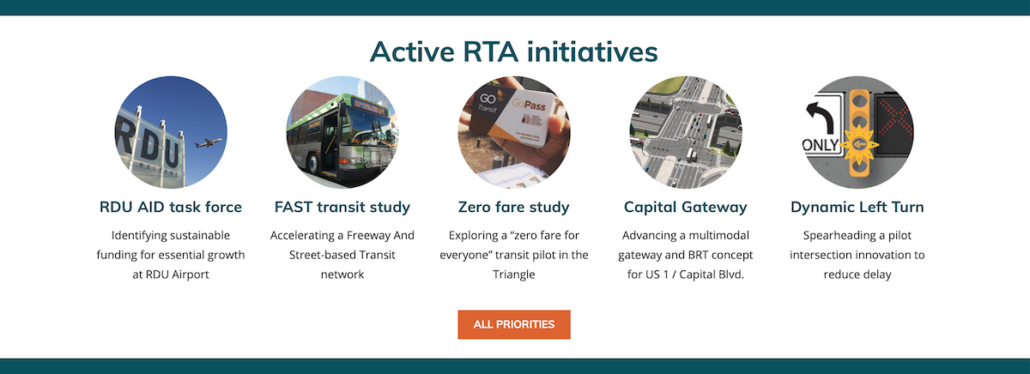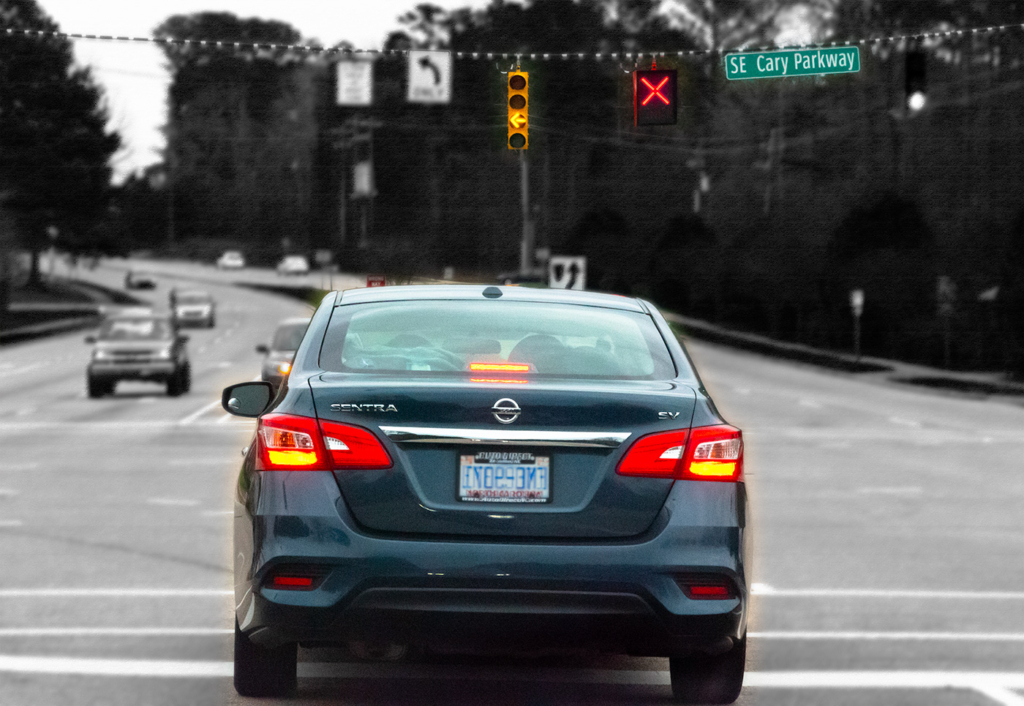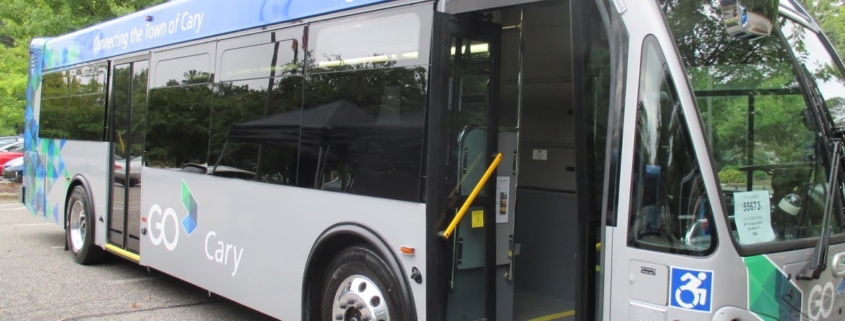What’s Next for Transportation in Cary
Cary, NC — Executive Director of the Regional Transportation Alliance, Joe Milazzo II, gave a regional transportation update in yesterday’s virtual meeting of the Heart of Cary Association.
New Focus & Priorities
RTA is a business leadership group made up of nearly 150 member companies and chambers of commerce in the Triangle working to “get our region moving faster.” Adapting to the new challenges of travel in a pandemic, RTA chose to focus on 3 areas — equity, recovery and opportunity.
From these 3 focuses came the organization’s top priorities:
- Finding funding for at RDU Airport
- Advocating for accelerated completion of regional transit corridors
- Promoting travel time savings and increased reliability for I-40 and other freeways
- Advancing innovative mobility solutions
- Creating short-term relief and sustainable funding for roadways
Current Projects
There are five initiatives in the works for RTA including Cary’s dynamic left turn and a study on zero fare transit.

Dynamic Left Turn “Already Paid for Itself”
The crossing of Tryon Road and Cary Parkway became the nation’s first operating Dynamic Left Turn intersection in mid-February 2020.
After less than 5 months of operation, RTA hired a consultant from the NCDOT to look at travel time, value of time and how many years it would take to pay the project back.
“They said it’s already paid for itself in terms of travel time,” said Milazzo. The study showed drivers can save up to 2 minutes of travel time each cycle.

During an off-peak time, a driver waits for a gap in traffic to turn left onto SE Cary Parkway. During peak times, the right turning lane opens and displays a protected green arrow each cycle.
The intersection effects only drivers making the left onto SE Cary Parkway from eastbound Tryon Road. As with any new traffic pattern, there have been issues of compliance, particularly with cars ending up in the closed lane during off-peak times. Milazzo said most, about 80-85% are obeying the signals.
To help with this, a sign was added to say “Lane Closed on Red X.” The intersection remains in its pilot stage.
Looking at a Zero Fare Future

Joe Milazzo II, Executive Director of the Regional Transportation Alliance.
The RTA has been in support of expanding zero fare transit since January 2018.
According to Milazzo, the shift to zero fare is all about removing the financial, mental and physical barriers preventing travelers from using public transit. Beyond the financial benefit to users, others are:
- Enhanced equity and shared prosperity
- Increased ridership
- Faster travel times
- Improvement of driver morale and safety
On the flipside, the issues to consider are:
- Loss of fare revenues
- Crowding on certain routes
- Operational challenges
- Increased maintenance, capital and operating costs
How?
The most prominent obstacle is how to replace fare revenues. Based on other agencies who have implemented zero fare, the answer seems to be in sales tax mostly, with other solutions including institutional contributions, city reimbursements and general fund allocations.
Where?
Milazzo says zero fare pilot programs are possible for GoCary, GoRaleigh, GoDurham and GoTriangle. Chapel Hill Transit would continue its program which has been zero fare for everyone since 2002.
The proposed pilots for Durham, Raleigh and the Triangle are zero fare on weekends only, while Cary could be suitable for the weekend or 7-day pilot. The weekend pilot creates an easier to fill revenue gap and helps control crowding risks.
When?
Milazzo says none of these transit agencies are ready to start up zero fare now. The next steps for zero fare would be to address the risks, tradeoffs, working with partners and finding a scalable pilot program.
“We will continue to explore and advance the conversation,” said Milazzo.
For more on other initiatives like the Capital Gateway, RDU airport and the FAST network, see the RTA website.
Story by Ashley Kairis. Photos by Hal Goodtree and Town of Cary.
All the Cary news every day since 2009. Subscribe by email.




Would be nice to see a bus route and bus stops in west Cary near the Grove at Cary park apartments.or by the Aldi’s grocery store .and amberly place by Publix.this neighborhood really needs a bus route and bus stops.
GO Triangle has been looking at that. Unfortunately, the area is very spread out. It may be possible for something to happen at the shopping centers, keep complaining and writing because they are hearing from Western Cary- but the area provides many challenges. maybe the shopping centers can be centralized transit hubs?